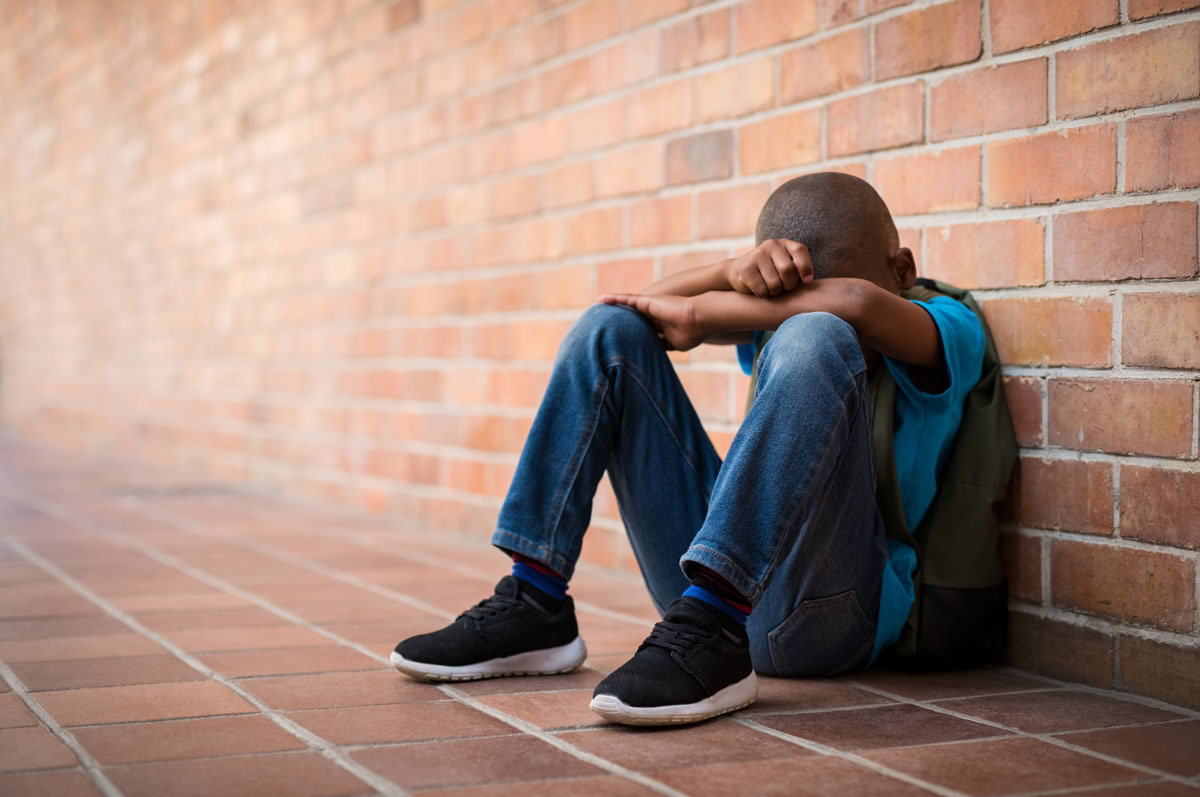Make My Schedule and Plan Now
It’s generally considered best for both parents to be involved in their child’s upbringing. When a parent loses custody, judges still typically order some limited parenting time for them, such as supervised visitation.
Family courts often set conditions to allow the restricted parent to eventually earn unrestricted or additional time with the child. For example, if a mother loses custody for drug abuse and has supervised visitation, the court may allow her to have unsupervised visits after completing addiction treatment and participating in drug testing.
How a mother or father can lose custody
In all states, the court’s primary concern is the child’s physical safety and caretaking needs. Family courts also ensure that children have stable homes and are secure with both parents.
If a mother or father poses a risk to their child’s safety or security, the other parent can ask the court to order sole physical custody to restrict the unsafe parent’s time with the child and sole legal custody to limit their role in making decisions about the child.
-
Abusing or neglecting the child
If a parent physically abuses or neglects their child, courts typically award sole custody to the other parent.
Child abuse is defined as any non-accidental physical harm to a child caused by a parent or caregiver. It includes hitting, punching, whipping, burning, hair pulling, shoving, throwing, choking and any other action that causes physical injury. Physical discipline (e.g., spanking) is not considered abuse if it does not injure the child. (However, experts recommend non-physical discipline.)
Sexual abuse occurs when a parent or caregiver uses a child for sexual purposes or involves the child in sexual acts. It also occurs when an older or more powerful child uses a younger child for sexual acts. Parents who sexually abuse their child or knowingly put them at risk of sexual abuse typically lose custody and, often, parental rights.
Emotional abuse includes not offering affection, shaming the child, telling them they’re unwanted, yelling at them and keeping them isolated from others. Courts consider emotional and psychological abuse when determining custody, especially if a parent has mental health issues that negatively impact their parenting (e.g., if a parent is a narcissist).
Neglect is a form of abuse in which a parent fails to meet the child’s care needs. Physical neglect includes not caring for the child’s hygiene and not providing adequate shelter, food or clothing.
Leaving a child alone or with inadequate or dangerous caregivers is also considered neglect. Educational neglect occurs when a parent doesn’t enroll the child in school, allows them to miss a lot of school or ignores their special education needs. Medical neglect is failure to ensure the child receives necessary or recommended medical care.
-
Using alcohol or drugs irresponsibly
If a parent’s alcohol or drug use impacts the child, or if a parent has untreated alcohol or drug addiction, courts will most likely restrict their parenting time to supervised visitation. Illegal drug use, even if the parent hasn’t been convicted of a drug crime, can also cause a parent to lose custody.
Additionally, many states have laws addressing child custody and convictions for driving under the influence (DUI). In Arizona, for example, the court can deny or restrict parenting time for a parent who has a DUI conviction within 12 months of the custody dispute.
If a parent who formerly abused alcohol or drugs has received treatment and is otherwise a safe parent, courts will most likely not restrict their custody, especially if they’ve been in recovery for a significant amount of time. The court may require drug testing or evidence of ongoing treatment.
How cannabis use impacts custody depends on the state’s laws and if the parent’s use affects the child. Like moderate and safe alcohol use, the court may not consider it a risk if the parent uses it legally, safely (e.g., no driving under the influence) and only when they’re not around the child.
However, if the parent uses cannabis illegally or endangers the child through their use, the court may limit their custody. It’s also important to remember that cannabis is still illegal under federal law, even in states that have legalized. Depending on the court and judge, even legal recreational use could be viewed as criminal activity that endangers the child.
-
Abducting the child
Parent–child abduction — also called parental kidnapping and custodial interference — is a crime that occurs when a parent keeps the child from the other parent with the intent of interfering with that parent’s custodial rights.
When this happens, the parent who abducted the child often loses custody, especially if they took the child over state lines or to another country, or if they caused the child psychological or physical harm.
However, if the victim keeps the child away from the other parent in order to protect them self or the child from abuse, the court may not consider it a crime or hold it against them in custody decisions.
-
Disobeying court orders
Custody orders — often issued in the form of a parenting plan and a parenting time schedule — are legal mandates that both parents must follow. Depending on the number and severity of the violations, disobeying court orders can result in loss of custody and even criminal charges.
For example, repeatedly being very late to drop off the child is not only disobeying court orders, it can be considered custodial interference or parental kidnapping, which are crimes.
Violations prevent effective co-parenting and can negatively impact the child, so courts take them seriously and often limit the custody of the violating parent.
Disobeying child support orders, however, is typically not grounds for losing custody. A parent who fails to pay child support may face civil or criminal charges, but courts do not take away their parenting time. Additionally, the other must still follow the court orders, including the parenting schedule.
-
Interfering in the child’s relationship with the other parent
Family courts emphasize the importance of children having ongoing, healthy relationships with both parents. This is why joint custody is the most common arrangement. It’s also why a parent who tries to minimize the other parent’s role in the child’s life without a reasonable cause (e.g., protecting the child’s safety) may lose custody.
In addition to preventing the child from seeing the other parent, interfering with the child’s relationship with the other parent includes badmouthing them to or in front of the child, lying about them and discouraging the child from wanting to spend time with them.
Parental alienation is a severe form of interference in which a parent deliberately manipulates their child to turn against the other parent. There are currently no state laws that specifically address parental alienation, but many child custody experts consider it abuse. Family court judges often rule against the alienating parent and may order individual or family counseling.
-
Lying to the court
Lying in court paperwork or to the judge can also impact custody. While lying to the court (perjury) is a crime, family courts rarely pursue charges against a parent for lying. Instead, judges consider the dishonesty evidence that the parent won’t support the child’s relationship with the other parent or co-parent effectively. In these situations, judges often rule in favor of the other parent.
In particular, courts do not look favorably on parents who lie about child abuse or domestic violence. Many states, including California, Florida and New York, have laws that empower judges to restrict custody for a parent who knowingly makes false abuse allegations.
-
Generally putting the child at risk
Other behaviors and parenting issues that put the child’s physical and emotional well-being at risk can also cause a parent to lose custody.
Convictions for crimes or evidence of criminal activity, especially if the crimes are violent or if the victim was a child, typically cause a parent to lose custody.
When evaluating possible risks to children, courts also consider who lives in each parent’s home and who spends time around the child. For example, if a parent’s romantic partner has a criminal record or abuses drugs, judges often consider this a risk to the child and limit that parent’s custody.
Irresponsible parenting — e.g., having lax rules, encouraging reckless behavior, not monitoring media content — can also be used as evidence that a parent isn’t adequately caring for their child. If the irresponsible parent puts the child at significant physical, emotional or psychological risk, courts may limit their custody and order them to complete parenting classes.
Unemployment in and of itself will not cause a parent to lose custody. However, if a parent is unable to financially care for their child and issues of neglect arise, a judge may award custody to the more financially-stable parent. A parent who pays child support must still make payments if they lose their job, but they can ask the court to modify their child support order when they have an involuntary job loss.
Child Custody Evaluations
When the child’s safety is a concern, disputed cases typically include a custody evaluation, in which a court-ordered expert (often a mental health professional) evaluates parents’ ability to adequately care for their child.
The evaluator reviews the family’s records and interviews the parents. Often, they also interview the child and others who know the family. The evaluator writes a report for the judge that summarizes everything and makes custody recommendations. Judges don’t always order what the evaluator recommends, but they typically give the reports great weight.
Either parent can request an evaluation, and judges often order them of their own accord when they need more information. In many courts, custody evaluations are automatic if child abuse is alleged or suspected. Courts may also appoint a guardian ad litem to investigate the family and represent the child’s best interests in court.
Modifying orders
Either parent can ask the court to modify existing custody orders and request sole custody. If the child is in immediate physical danger, courts can issue an emergency order to protect them from the unsafe parent.
Remember that family courts don’t take what parents say at face value — they require proof (evidence) of every claim made in court paperwork and proceedings. In addition to reports from custody evaluators, common custody evidence includes photos, emails, text messages, social media posts, family calendars and official records (e.g., medical, school, criminal, child protective services).







